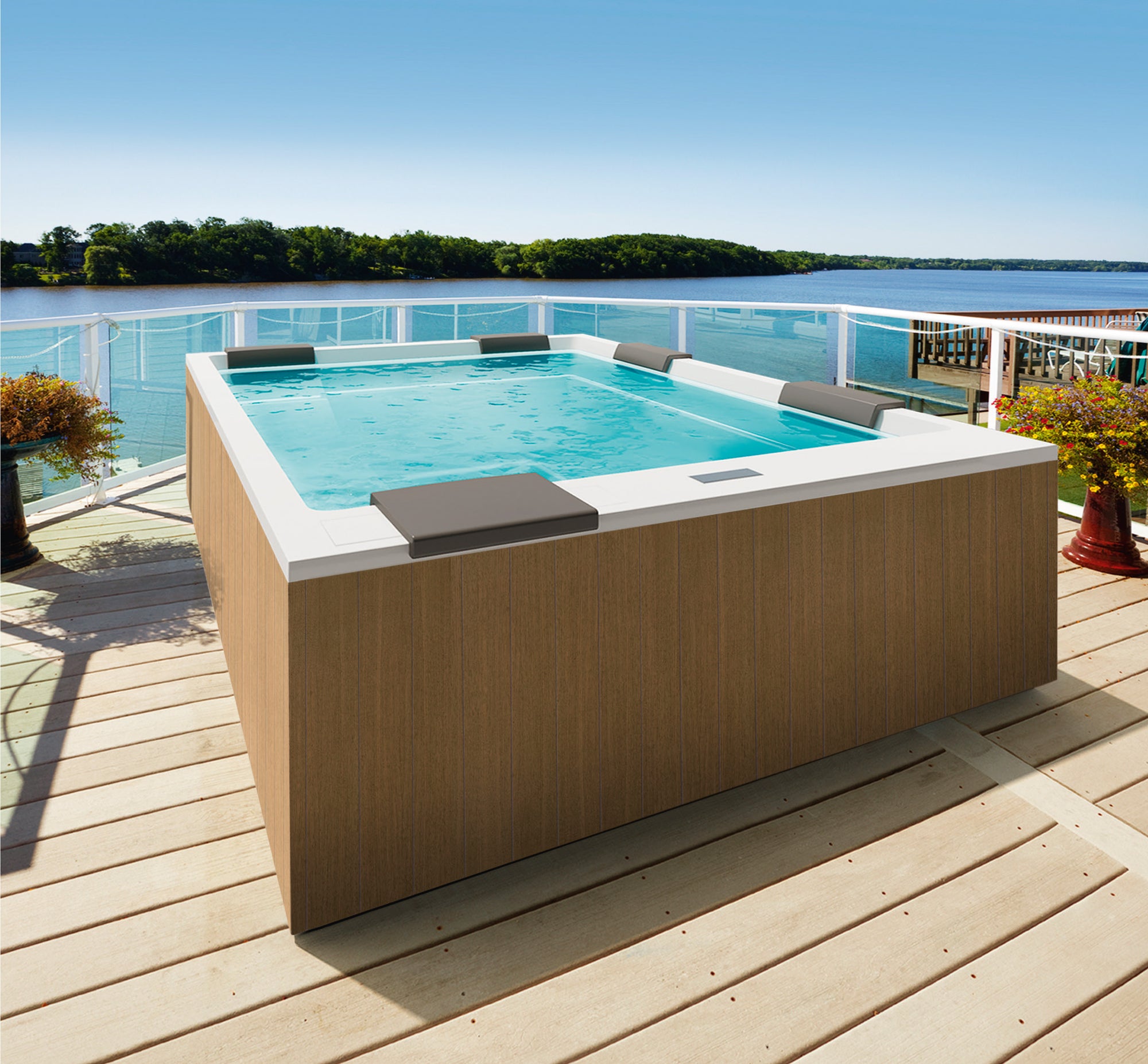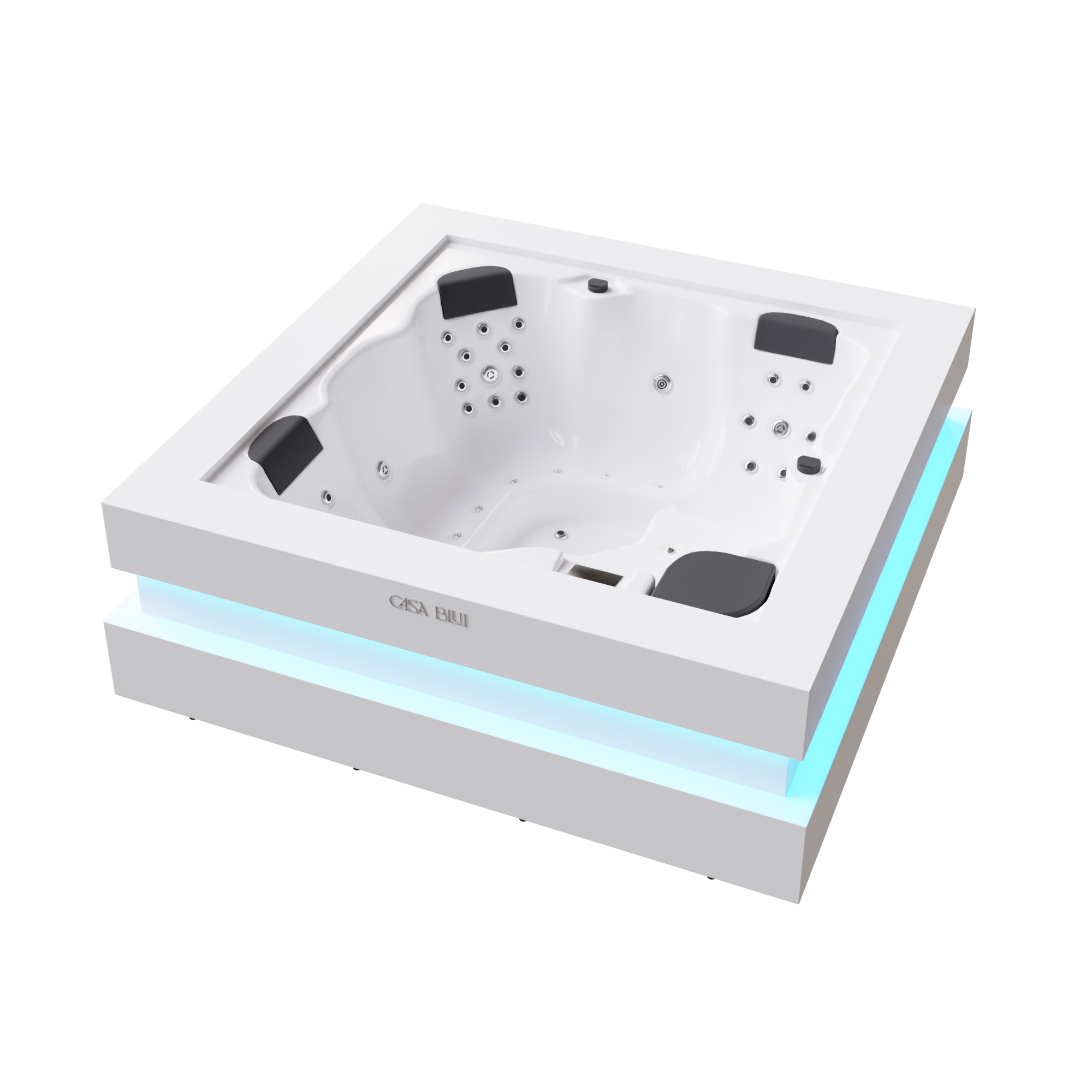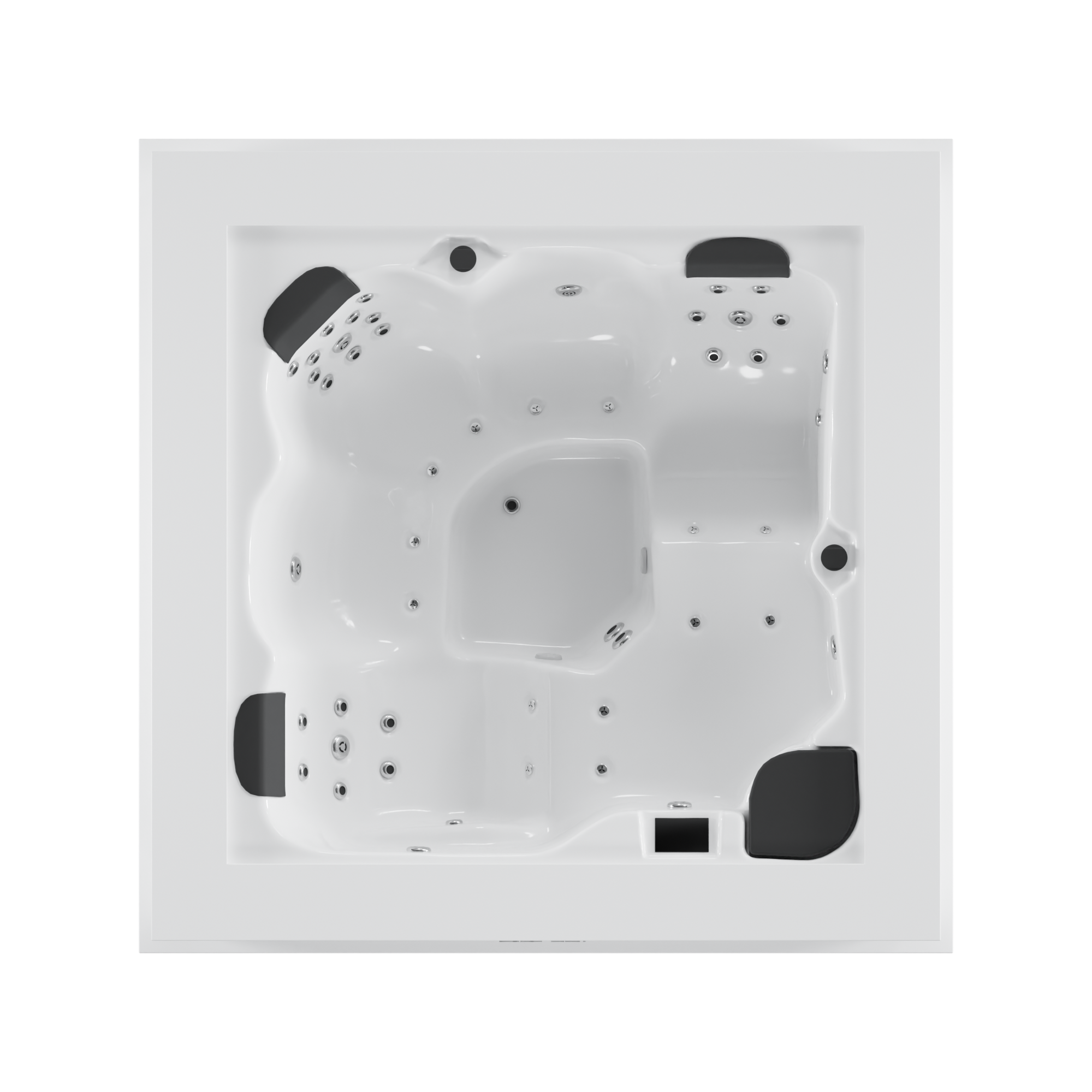Casa Blui Blog
Chlorine vs. Bromine vs. Salt Water Hot Tubs
By andrei newman

When choosing a home hot tub, one of the most significant decisions you'll face is selecting the type of sanitation system: saltwater, chlorine, or bromine. Each has its advantages and drawbacks, and the best choice for you depends on your specific needs and preferences.
With our extensive experience in home spas, we're here to help you make an informed decision. So please sit back, relax, and guide us through the options.
3 Different Hot Tub Sanitization Options
Hot tub sanitization is essential for maintaining a clean and safe soaking environment. The three main options—saltwater, chlorine, and bromine—have unique benefits and potential drawbacks. Your specific needs, such as skin sensitivity and maintenance preferences, will determine your best option.
Chlorine hot tubs are the most common and offer a straightforward, cost-effective method for maintaining water quality.
Bromine hot tubs offer a similar level of sanitation as chlorine. Still, they are often preferred for their stability in high temperatures and more comprehensive pH ranges.
Saltwater hot tubs use a generator to convert salt into chlorine, sanitizing the water.
What Is a Chlorine Hot Tub?
Chlorine hot tubs are standard due to their ease of use. Chlorine sanitizes the water by breaking down harmful bacteria and algae, ensuring the water remains clean.
Advantages: One advantage of chlorine systems is their ability to maintain consistent sanitizer levels. However, these levels can fluctuate, requiring regular monitoring and adjustments to ensure optimal water quality.
Drawbacks: Despite its effectiveness, chlorine can cause skin and eye irritation for some, especially at higher concentrations. It also has a strong odor that can detract from the spa experience for some users.
What Is a Bromine Hot Tub?
Bromine is a popular alternative to chlorine, particularly in hot tubs, because it is stable at high temperatures and remains effective across a more comprehensive pH range.
Advantages: Bromine is more stable than chlorine in hot environments, making it a better option for hot tubs. It is also less likely to cause skin and eye irritation and produces a less pungent odor than chlorine.
Drawbacks: Bromine can be more expensive than chlorine regarding initial setup and ongoing maintenance. It also acts more slowly than chlorine, so it may not be the best choice if you must quickly correct water chemistry.
What Is a Saltwater Hot Tub?
Saltwater hot tubs use a specialized salt-to-chlorine sanitation system, where dissolved salt is converted into chlorine through electrolysis.
Advantages: Saltwater systems contain minerals like magnesium, potassium, and calcium, which you can absorb through your skin. This can improve your circulation, soothe your muscles, and promote relaxation. The lower chlorine levels in these systems are often gentler on sensitive skin and eyes.
Drawbacks: Saltwater hot tubs require less frequent chemical additions but involve specific maintenance challenges. You must carefully manage the salt levels to avoid damaging the hot tub components, and the salt cell may require expensive replacements over time.
Hybrid Options
Some pool and hot tub owners opt for hybrid systems that combine chlorine and bromine or use salt systems to generate either. While this approach can reduce chlorine use, it often comes with higher costs and more complex maintenance requirements.
Environmental Considerations
When considering the environmental impact of your hot tub sanitation system, it's important to note that neither saltwater nor chlorine or bromine systems have a clear advantage. All of these require regular chemical balancing and consume electricity. If environmental concerns are a priority, investing in a more energy-efficient hot tub may be a better option for reducing your overall impact.
Choosing the Right Sanitizer for Your Hot Tub
In making your decision, consider the following:
Personal preferences & sensitivities: A saltwater or bromine system might be the best choice. Chlorine is adequate but could be harsh on your sensitive skin and eyes.
Investment considerations: Saltwater systems have higher initial costs but may be more cost-effective in the long run due to lower ongoing maintenance. Chlorine systems are generally cheaper upfront but require regular chemical purchases. Bromine is more expensive than chlorine but may be worth the cost for its stability and gentleness.
Maintenance willingness: A saltwater system might be ideal if you prefer minimal maintenance, as it requires less frequent chemical additions. However, careful monitoring of salt levels and occasional equipment maintenance is required. Chlorine systems require regular testing and adjustments, while bromine systems, though more stable, also require consistent upkeep.
Manufacturer recommendations: Always check the manufacturer's guidelines for your hot tub, as different models may have specific requirements or recommendations for the best type of sanitizer to use.
Frequently Asked Questions
Can you switch a hot tub from bromine to salt?
It is possible to switch your hot tub from bromine to salt. You can achieve this by installing either an in-line or drop-in saltwater chlorinator. Note that in-line systems attached directly to your tub's plumbing system are more challenging to install than drop-in units.
What happens if you go in a hot tub with too much bromine?
Entering a hot tub with excessive bromine or chlorine (above 3 ppm) can be unsafe, triggering symptoms like nausea, vomiting, itching in the eyes, and difficulty breathing.
Is chlorine, bromine, or salt better for hot tubs?
Choosing chlorine, bromine, or salt for sanitizing your hot tub depends on several factors, including your personal preference, chemical sensitivities, desired maintenance schedule, etc. Each option has advantages and drawbacks. For example, bromine is generally more stable at high temperatures and varying pH levels but more expensive than chlorine. Meanwhile, chlorine is economical, but it can be harsh if you have sensitive skin or eyes. Salt systems are known for being gentle on people's skin and eyes, but the salt levels require careful monitoring.










